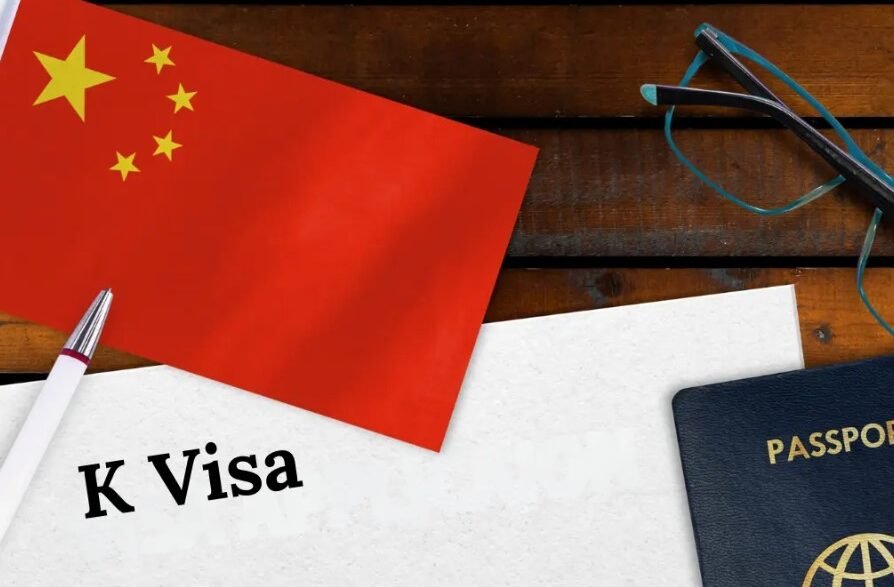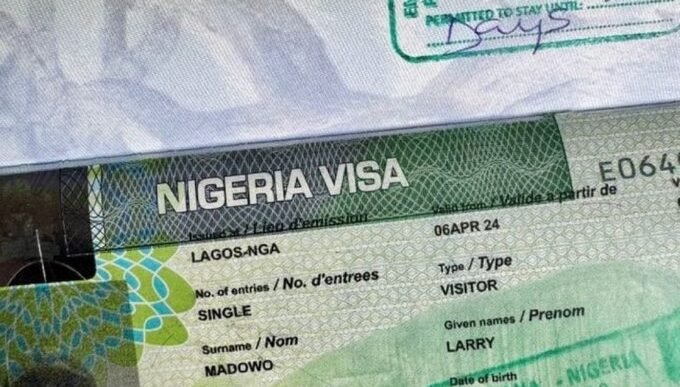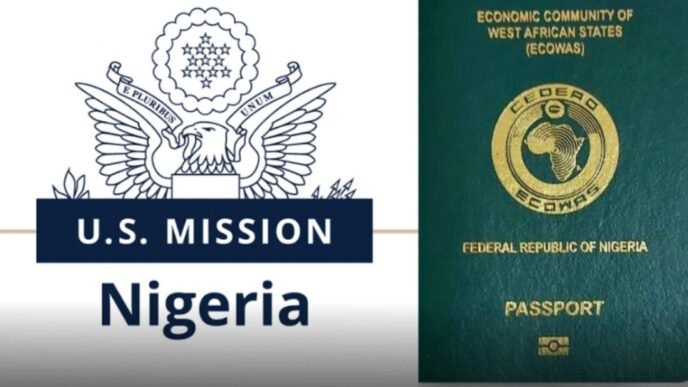China Launches K-Visa Programme for Young Science and Technology Talents from Nigeria and Other Countries
China has officially confirmed the commencement of a new visa category known as the K-Visa, which will come into effect on October 1, 2025. The initiative is specifically designed to attract young talents in science and technology from Nigeria and other countries around the world. The announcement, made in Beijing on Monday, signals a major step in China’s efforts to consolidate its reputation as a global hub for innovation while strengthening international cooperation in research and development.
The K-Visa programme is expected to benefit countries like Nigeria that are rich in youthful populations with growing interest in science, technology, engineering, and innovation. The programme provides Nigerian talents with an unprecedented opportunity to participate in international research projects, gain exposure to world-class laboratories, and foster collaborations that could transform entire industries back home.
What the K-Visa Offers
Chinese authorities explained that the K-Visa will be a special multiple-entry visa with significant advantages over existing categories. Among its features are longer residency periods, simplified application procedures, and the ability to participate in various scientific and industrial activities without the bureaucratic hurdles traditionally associated with foreign work or study visas.
The visa is tailored to individuals under a certain age bracket—typically young graduates, researchers, and early-career professionals—with expertise in critical fields such as artificial intelligence, biotechnology, renewable energy, digital infrastructure, information technology, and space science. Holders of the K-Visa will have access to China’s leading technology parks, innovation hubs, and research institutions.
Officials say the programme is also designed to encourage knowledge sharing. Successful applicants will be able to join incubator programmes, contribute to startup development, and collaborate with established Chinese companies and universities. The long-term vision, according to Chinese policy experts, is to build a global network of innovators who can contribute to solving pressing global challenges.
Why Nigeria Stands to Benefit
Nigeria, Africa’s most populous nation, has one of the youngest populations in the world. With over 60 percent of its citizens under the age of 25, the country is brimming with young people eager to explore opportunities in technology and science. However, limited resources, weak infrastructure, and inadequate funding for research have often stifled innovation locally.
The K-Visa programme comes as a timely opportunity for Nigerian youths. It could bridge the gap between potential and opportunity by giving them access to advanced facilities and mentorship in China. The collaboration could also drive technology transfer, enabling young Nigerians to bring back new skills and ideas to stimulate growth in critical sectors of the Nigerian economy.
China and Nigeria already share a robust partnership in trade, infrastructure, and education. Thousands of Nigerian students are enrolled in Chinese universities, studying courses ranging from engineering to medicine. The K-Visa will add a new dimension to this relationship by focusing on high-tech talent and innovation-driven development.
A Strategic Move by China
Analysts view the K-Visa as part of China’s broader strategy to assert itself as a global leader in science and technology. For years, China has invested heavily in research and development, climbing to the top ranks in areas such as artificial intelligence, 5G technology, space exploration, and green energy. Yet, despite these achievements, Chinese authorities recognize that global cooperation is key to sustaining long-term innovation.
By opening its doors to young talents from around the world, China is ensuring that its scientific community remains dynamic, diverse, and globally connected. The policy also projects soft power, allowing China to strengthen ties with developing economies like Nigeria while positioning itself as a magnet for the brightest minds.
The programme is also aligned with China’s long-term goals under its 14th Five-Year Plan, which prioritizes innovation, digital transformation, and sustainable development. The K-Visa is a tool to bring in fresh ideas and cutting-edge research that will contribute to these national objectives.
Voices from Nigeria’s Science Community
Reactions in Nigeria have been largely positive. Dr. Aisha Balogun, a technology policy analyst based in Lagos, said the initiative could not have come at a better time. “Nigeria’s young population is full of untapped talent. Many of our graduates in fields like engineering and computer science lack the resources to pursue advanced research. The K-Visa gives them a platform to gain exposure and then return with skills that could accelerate our national development,” she said.
Similarly, Professor Gabriel Okon, a senior lecturer in biotechnology at the University of Port Harcourt, highlighted the importance of international partnerships. “Science thrives in collaboration. The more our young researchers interact with global counterparts, the more innovative they become. This is how groundbreaking solutions are discovered. China’s programme opens that door.”
Young Nigerian innovators have also expressed enthusiasm. For many, the chance to participate in joint research or access China’s vast innovation ecosystem could be life-changing. Tech entrepreneur Femi Adetola noted that it could also boost Nigeria’s startup scene: “Imagine a scenario where a Nigerian graduate collaborates with a Chinese tech company, develops a prototype, and then brings that product back to Nigeria. That kind of cross-pollination is exactly what we need.”
Challenges and Considerations
While the opportunities are significant, experts caution that certain challenges must be addressed for the K-Visa to have maximum impact. One concern is ensuring that Nigerian talents who travel under the programme eventually return home to contribute to national development. There is always the risk of brain drain, where highly skilled individuals remain abroad without impacting their home country.
To mitigate this, Nigerian policymakers may need to establish frameworks that encourage returning talent to engage in national projects, startups, or government-led innovation initiatives. Scholarships, research grants, and incubator support could serve as incentives.
Another issue is awareness. Many Nigerian youths are often unaware of international programmes until it is too late. Information campaigns by the Chinese Embassy in Abuja and Lagos will be critical to ensure that potential applicants know the requirements and timelines. Nigerian universities, research institutes, and technology hubs also have a role to play in disseminating information about the K-Visa.
Implications for Global Science and Technology
The K-Visa has broader implications beyond Nigeria and China. It signals a shift in how nations compete for global talent. Traditionally, countries like the United States, the United Kingdom, and Canada have been primary destinations for international researchers. China’s entry into this competitive space suggests it is ready to rival these traditional hubs by offering equally attractive opportunities.
For developing countries, this is a double-edged sword. On one hand, it provides their young scientists with opportunities they may not find at home. On the other, it raises the risk of losing their brightest minds if proper reintegration mechanisms are not in place. Nonetheless, experts argue that international exposure is ultimately beneficial, as long as there are policies to channel the knowledge gained back into local development.
What Comes Next
With the K-Visa set to take effect on October 1, attention is now shifting to the application process. Details on eligibility criteria, documentation, and timelines will be released by Chinese embassies and consulates worldwide. Early indications suggest that applicants will need to demonstrate academic or professional excellence in science and technology fields, alongside endorsements from recognized institutions.
For Nigerian youths aspiring to be part of the programme, preparation is key. Updating research portfolios, securing recommendation letters, and aligning proposals with China’s priority research areas could improve their chances of success. Technology hubs in Lagos, Abuja, and Port Harcourt are expected to serve as focal points for interested applicants.
Conclusion
China’s K-Visa programme represents a groundbreaking opportunity for young science and technology talents from Nigeria and other countries. It is more than a visa; it is a gateway to global innovation, collaboration, and mutual growth. For Nigeria, it offers a chance to empower its young population, foster international partnerships, and accelerate technological development.
As the world grapples with challenges such as climate change, digital transformation, and sustainable growth, initiatives like the K-Visa highlight the importance of cross-border collaboration. If effectively implemented, the programme could reshape the global innovation landscape while creating lasting benefits for countries like Nigeria that are eager to unlock the potential of their youthful talents.














